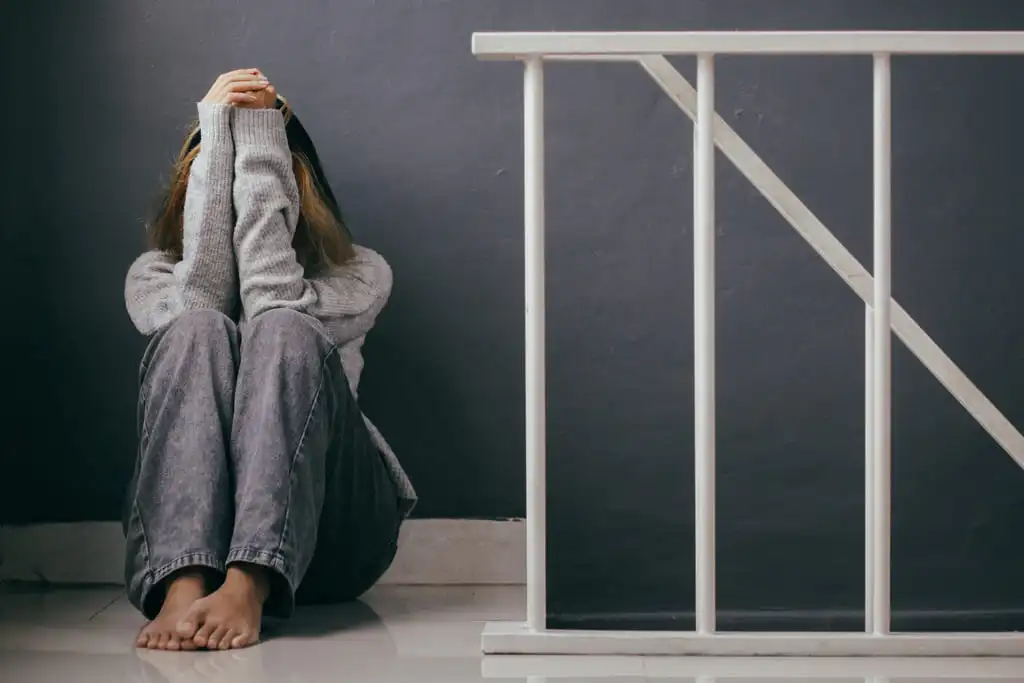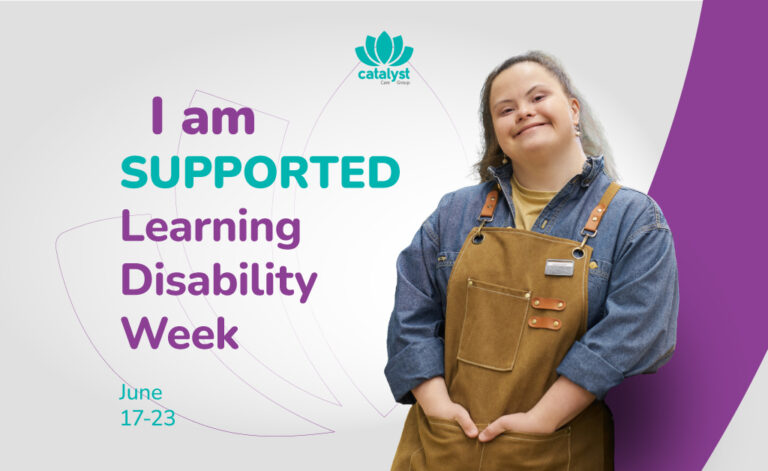The use of physical restraint in mental health settings should be a last resort and determined by healthcare professionals to ensure the safety of people under their care. However, when a person is unable to participate in decisions about their own body, it raises questions about their fundamental human rights.

This is our chance to change the system. Join our White Paper Survey 2025!
This article aims to review the impact of physical restraint on people’s mental health and explore human rights in physical restraint.
Catalyst Care Group works closely with the Reduction Restraint Network and the Loddon School to implement proactive and person-centred support in order to minimise the use of restrictive interventions.
Definition of Physical Restraint
Physical restraint in mental healthcare refers to the extreme practice of restricting a person’s body movement to prevent them from causing harm to themselves or others. Based on the Mental Health Act 1983, the practice of physical restraint is considered a last resort to protect people’s safety.
The purpose of physical restraint is to ‘protect’ and ‘control’, but it inevitably restricts the free will of people receiving mental health services, thus compromising their fundamental human rights. This raises important ethical questions about the value placed on human dignity and autonomy, especially for people with a learning disability, autism and severe mental health difficulties.
The Purpose of Restraint
Healthcare workers may need to intervene with restraint when someone is at risk of harming themselves or others during a mental health crisis. However, restraint should be a last resort, used only when prevention and de-escalation strategies have failed and there is no other solution. When restraint is necessary, it should be used with the purpose of reducing fear and distress, with ongoing efforts to de-escalate the situation.
People expect healthcare workers and mental health nurses to proactively prevent difficult situations and use their skills to de-escalate when challenges arise. While some care recipients have said that appropriate and well-executed physical intervention can make them feel safe, there have also been numerous reports of unnecessary and traumatising restraint.
The Negative Effects of Physical Restraint on Mental Health
The culture and environment in mental health units can contribute to situations where restraint is used. Based on a CQC report, over 2000 people were reported to have been subject to restrictive interventions in mental health units in 2021.
When people are not heard or given a chance to participate in decisions about their care or lack fulfilling activities and social interaction, frustration and distress can build up. Factors like overcrowding, blanket or arbitrary rules and restrictions, and limited opportunities to go outside also increase pressure. To reduce the use of restraint, it is essential to choose the right approach to care and support.
Let’s discuss the negative effects of physical restraints in mental health nursing and mental health practice.
Psychological Trauma and Distress
Psychological trauma and distress can result from experiences of physical restraint. Being restrained can cause feelings of helplessness, fear, and humiliation, which may lead to long-term emotional and psychological harm. This distress can manifest as anxiety, depression, post-traumatic stress disorder (PTSD), or a heightened sense of mistrust towards caregivers and the healthcare system. It’s crucial to minimise the use of restraint and ensure that, when necessary, it is applied in a way that prioritises the person’s emotional well-being and dignity.
Using physical restraint during mental health treatment has been shown to have a long-term negative impact on people’s lives.

Increased Anxiety and Depression
Physical restraint can lead to anxiety and depression. The experience can be frightening and degrading, causing ongoing fear, heightened alertness, and feelings of sadness or hopelessness. These emotions can persist long after the event, potentially leading to long-term anxiety and depressive symptoms. This further increases the risk of re-admissions, self-harm and losing personal identity.
When people experience a mental health crisis, it’s essential to approach them with empathy and compassion rather than being physically restrained.
The psychological impact of restraint underscores the importance of using it only as a last resort and with sensitivity to the person’s unique emotional needs.
Erosion of Caregivers’ Trust
Physical restraint can significantly erode trust in caregivers and the healthcare system, leading to multiple negative consequences. People who experience restraint may feel betrayed, vulnerable, and misunderstood, leading to a loss of confidence in their caregivers and the broader system.
This distrust can make people reluctant to seek help in the future, fearing further mistreatment or harm. As a result, they may delay or avoid necessary healthcare, potentially worsening their physical and mental health conditions. The psychological distress caused by restraint can also make it difficult to form positive therapeutic relationships, which are crucial for effective treatment and recovery.
This erosion of trust highlights the importance of minimising the use of restraint and ensuring that it is applied with compassion and respect for people’s dignity and well-being.
Increased Aggression and Resistance
Physical restraint can lead to heightened aggression and resistance. Being restrained often triggers strong emotional reactions, such as anger, fear, and frustration. These feelings can escalate into aggressive behaviours as people react defensively or attempt to assert control over the situation.
Additionally, the experience of being physically restrained can cause long-term behavioural changes, leading to increased resistance in future interactions with caregivers or authority figures. This response is often a protective mechanism, as people try to avoid situations where they might feel vulnerable or threatened again.
Benefits of PBS in Healthcare Settings
Positive Behavior Support (PBS) offers a compassionate approach to care, focusing on understanding and addressing each person’s unique needs. Here are some of the key benefits:
- Empathy and Understanding: PBS helps caregivers understand the reasons behind challenging behaviours. By recognising these triggers, caregivers can respond with empathy and create a more supportive and caring environment.
- Creating a Positive Environment: PBS emphasises positive reinforcement, which encourages desired behaviours and reduces the occurrence of challenging ones. This not only makes the environment safer and more comfortable for everyone but also helps people feel more secure and understood.
- Building Trust and Communication: Through PBS, caregivers learn to communicate more effectively, fostering trust and mutual respect. This improved communication helps ensure that each person’s needs and preferences are met, leading to better overall care.
- Supporting Caregivers: PBS provides caregivers with strategies and tools to manage difficult situations, reducing stress and preventing burnout. This support allows caregivers to provide consistent and compassionate care.
- Promoting Independence: PBS focuses on helping people develop new skills and behaviours, empowering them to be more independent. This not only improves their quality of life but also helps them feel more confident and capable.
- Changing people’s lives: The proactive approach of PBS leads to long-lasting improvements in behaviour and well-being. When people’s needs are met at the right time and in the right way, it helps create a more stable and supportive environment for everyone involved.
Implementing PBS in our daily practices enhances the quality of care, fosters a positive and understanding atmosphere, and supports both care recipients and support workers in achieving the best possible outcomes.
Transforming Care: Combining PBS and Positive Reinforcements
Supporting the Transforming Care agenda, we use value-based approaches which aim to improve the lives of autistic people, people living with a learning disability, and people living with mental health needs. We provide personalised, compassionate, and effective care. Here’s how these approaches align and support this mission:
- Person-Centered Care: PBS is rooted in understanding each person’s unique needs, preferences, and challenges. By focusing on the person rather than the behaviour, PBS promotes dignity and respect, ensuring that care is tailored to support each person’s well-being and autonomy.
- Empowerment and Independence: Value-based approaches emphasise empowering people to make choices about their own lives. By building skills and reinforcing positive behaviours, PBS helps people gain greater independence, confidence, and control over their lives, aligning with the Transforming Care agenda’s goal of promoting independence.
- Holistic Support: PBS and value-based approaches consider the whole person, addressing not just behaviours but also emotional, social, and physical needs. This comprehensive support helps create a more stable and supportive environment.
- Proactive and Preventive Strategies: By identifying and addressing the underlying causes of challenging behaviours, PBS prevents crises and reduces the need for restrictive interventions. This proactive approach aligns with the Transforming Care agenda’s emphasis on reducing the use of inpatient care and restrictive practices.
- Collaboration and Inclusion: PBS encourages collaboration among caregivers, families, and the person themselves. This inclusive approach ensures everyone involved has a voice in the care process, promoting shared decision-making and a sense of community.
- Ethical and Value-Based Decision Making: Value-based approaches prioritise ethical considerations and the core values of respect, dignity, and fairness. These principles guide the delivery of care, ensuring that all actions and decisions are in the best interest of the people supported.
- Building Community Connections: The Transforming Care agenda emphasises the importance of community inclusion and support. PBS helps people build meaningful connections within their communities, reducing isolation and fostering a sense of belonging.
Supporting people with PBS and value-based approaches ensures that care is compassionate, personalised, and effective, helping people lead fulfilling lives within their communities. This alignment with the Transforming Care agenda underscores the commitment to providing high-quality, ethical, and person-centred care for all.
Catalyst Care Group Support Workers are PBS Trained
At Catalyst Care Group, providing person-centred and integrated care is fundamental to our mission. Using PBS strategies, our team can effectively manage crises, facilitate smooth transitions, and prevent unnecessary hospital admissions. Our support workers are trained in PRO-ACT SCIPr, a comprehensive approach to supporting people with behaviours of concern.
Our support plans are intentionally and carefully designed, using proactive strategies to reduce the need for reactive and restrictive interventions.
With a multidisciplinary team of PBS specialists, speech and language therapists and community psychiatric nurses, we work closely with the Restraint Reduction Network to ensure the best possible outcomes for people, including:
- Conducting functional and intentional assessments of behaviours of concern
- Developing evidence-based support strategies
- Offering regular, personalised training for support teams
- Crafting personalised PBS plans
- Engaging in multidisciplinary and cooperative work
- Providing emotional support and fostering open conversations with our support workers
We are dedicated to the Transforming Care Programme, which is grounded in a human-rights model of care. Catalyst Care Group collaborates with colleagues across systems to find solutions that enable people to receive high-quality, person-centred support in their own homes and communities.
For more information, contact us today!













